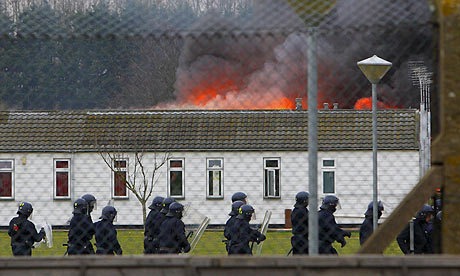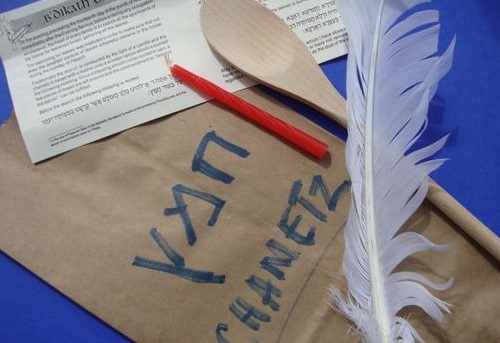Adapted from the writings of Dayan Yitzhak Grossman April 11, 2024 The Los Angeles Times…

Under Fire: Must Someone Be Saved from a Danger of His Own Making?
Adapted from the writings of Dayan Yitzhak Grossman
April 13, 2023
The Associated Press reports:
After migrants in northern Mexico placed mattresses against the bars of their detention cell and set them on fire, guards quickly walked away and made no apparent attempt to release the men before smoke filled the room and killed 38 men, surveillance video showed Tuesday…In the video, two people dressed as guards rush into the camera frame, and at least one migrant appears by the metal gate on the other side. But the guards did not appear to make any effort to open the cell doors and instead ran away as billowing clouds of smoke filled the structure within seconds…Mexico President Andrés Manuel López Obrador said the fire was started by migrants in protest after learning they would be deported. “They never imagined that this would cause this terrible misfortune,” López Obrador said.[1]
In this article and a follow-up, we discuss several halachic issues raised by this tragedy.
The obligation to rescue
In general, a Jew able to save another from injury or death is obligated by a positive commandment to do so and violates a negative commandment if he fails to do so:
From where do we know that if one sees his fellow drowning in a river or a wild animal ravaging him or bandits coming to attack him, that he is obligated to save him? The pasuk says, “Do not stand by the blood of your friend.”
But is it indeed from here that this law is derived? According to a breisa, it is derived from another pasuk: The Torah says that a lost object must be returned to its owner, but from where do we know that if one’s life is in danger, one must save him (thereby “returning” his life to him)? The pasuk says (apparently superfluously): “And you shall return it to him.” (So why would “Do not stand by…” be required to teach the same thing?)
If the only source was “And you shall return it to him,” I would have said that one is only obligated if he can save the victim himself. But with regard to bothering himself and hiring rescuers, I would have said that is not required. “Do not stand by…” informs us that he must do so.[2]
The Minchas Chinuch suggests that since the obligation to return lost property does not apply to cases of deliberate loss (aveidah mida’as),[3] it follows that the obligation to rescue someone from lethal danger, which this Gemara derives from that obligation, similarly does not extend to one who commits suicide.[4] The Kli Chemdah and the Igros Moshe, however, strongly disagree and insist that one is obligated to save even a suicide.[5] The Revid Hazahav holds a compromise position: While in theory there is no obligation to save a suicide because he is considered aveidah mida’as, in practice there is, because there is a presumption that one who commits suicide is mentally deranged and therefore not in the category of aveidah mida’as.[6]
In our case, presumably all would agree that there was an obligation to save the lives of the migrants, because although they did start the fire themselves, it is clear that, as President López Obrador said, “they never imagined that this would cause this terrible misfortune,” so they would not be considered aveidah mida’as.
Criminal liability for failing to rescue
While the deliberate failure to comply with the obligation to rescue someone from death is surely a grave sin, it does not engender any criminal liability. The Gemara says:
Rava said: If one person bound another, and the victim died from hunger, he is not liable to execution. And Rava said: If one person bound another in the sun, and he died of exposure, or in the intense cold and he died of exposure, he is liable to execution. But if he bound him in a place where the sun or the intense cold would eventually come, he is not liable to execution.[7]
If even someone who actively bound someone in a place where the sun would ultimately arrive and kill him is exempt from execution, then certainly one who only fails to rescue someone from lethal heat is exempt.
Murderers whose execution under standard procedures is prevented by certain technicalities are nevertheless executed via an irregular, indirect method.
The following laws apply when a person kills people, but [various technicalities of the laws of testimony are not met]…
All those murderers should be forced to enter a cell. There they are fed parched bread and small amounts of water until their digestive tracts contract. Then they are fed barley until their bellies burst because of the extent of their illness and they die.
This measure is not taken with regard to other crimes punishable by execution by the court. If a defendant is liable to execution, he should be executed. If he is not liable to execution, he should be released.
Although there are other sins that are more serious than murder, they do not present as serious a danger to society as murder does. Even idol worship—and needless to say, forbidden relationships or chillul Shabbos—are not like murder. For these sins involve man’s relationship with the Omnipresent, while murder also involves man’s relationship with his fellow man…[8]
Even this irregular form of execution, however, is only prescribed for active murder, and I am not aware of any basis for applying it to one who passively fails to save someone from death.
In the following article, we will iy”H consider the question of civil liability for wrongful death or injury caused by failure to take action to save someone from danger.
[1]María Verza and Morgan Lee. Video shows guards walking away during fire that killed 38. AP News. https://apnews.com/article/mexico-fire-migrant-facility-dead-eea0b6efafd77f9868ef27ed1cf572b3.
Cf. Fabiola Sánchez and Morgan Lee. 38 dead in Mexico fire after guards didn’t let migrants out. AP News. https://apnews.com/article/mexico-fire-migrant-facility-dead-5bbb5cddebddf14941c83cd425532faa.
[4]Minchas Chinuch mitzvah 237 in Kometz Lamincha.
[5]Kli Chemdah, Ki Seitzei siman 6 (to Devarim 22:1) os 2; Shu”t Igros Moshe Y.D. cheilek 2 siman 174 anaf 3 s.v. Umah shekasav haMinchas Chinuch.
[6]Revid Hazahav (Treves), Devarim ibid. The Revid Hazahav seems to contradict himself as to whether all suicides are presumed to be the result of mental derangement, or only those that are known to be; see Kli Chemdah ibid.





